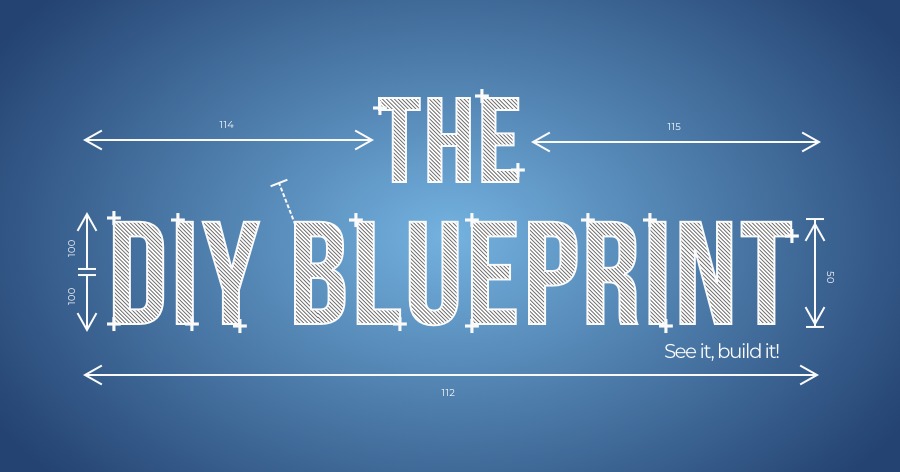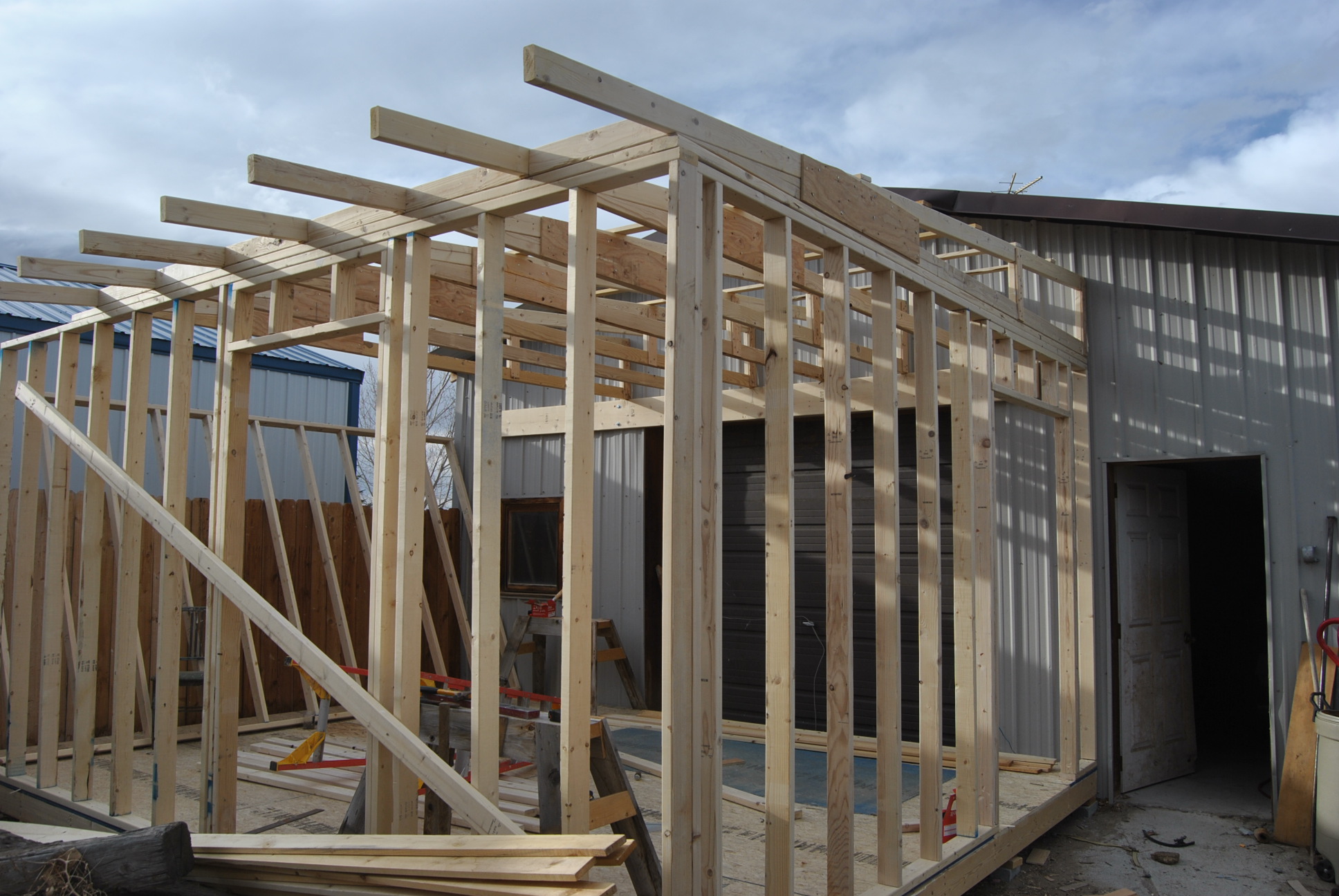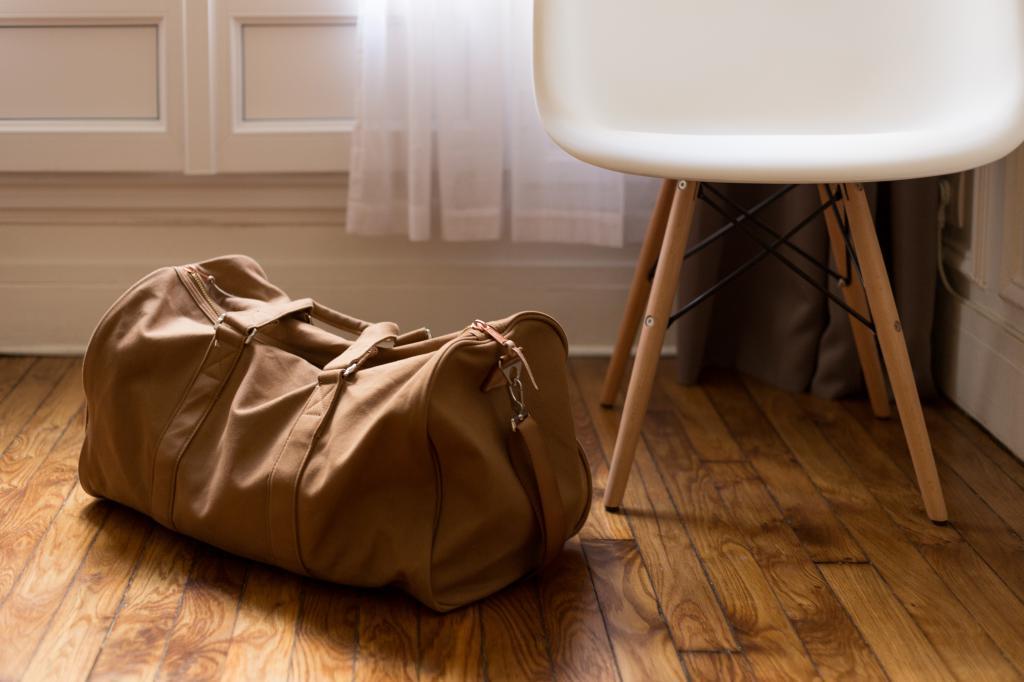Screws are essential fasteners that are used in almost every construction project. They come in different sizes, shapes, and types, each with unique features and applications. Choosing the right screw type for your project can be a daunting task, especially if you are not familiar with the different types of screws available in the market.
In this article, we will discuss ten types of screws for any project. Whether you are a DIY enthusiast or a professional contractor, these screws will come in handy for your next project.
Wood Screws
Wood screws are the most common type of screws used in woodworking projects. They have a tapered shank that allows them to grip the wood securely. They come in different sizes and lengths, and they are available in different materials, such as brass, stainless steel, and zinc-plated steel.
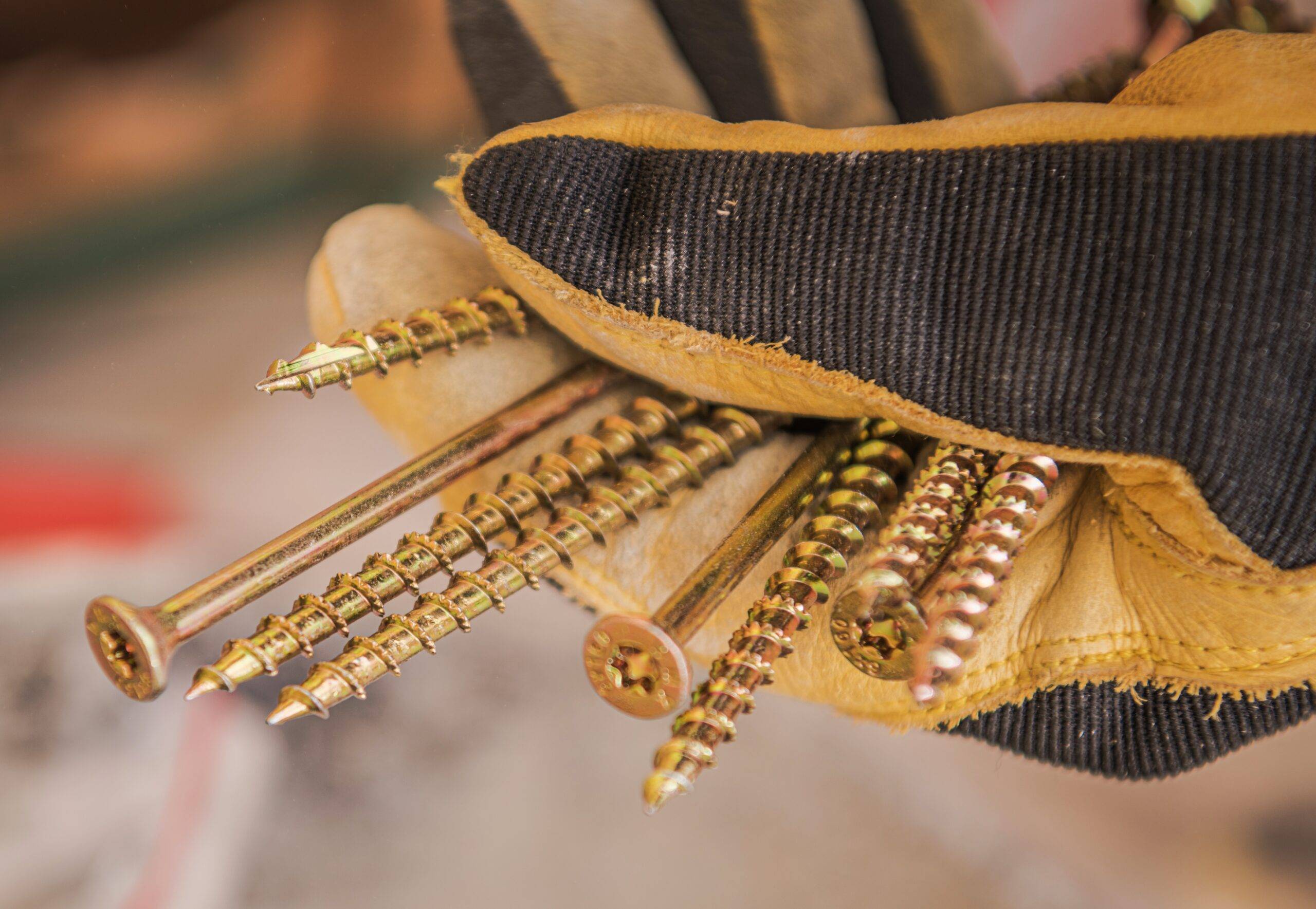
Photo Credit: duallogic via Envato Elements – Construction contractor choosing wood screws.
Machine Screws
Machine screws are used in metalworking projects. They have a uniform diameter and thread pitch, and they are available in different head types, such as flathead, roundhead, and panhead. Machine screws are commonly used in automotive and industrial applications.
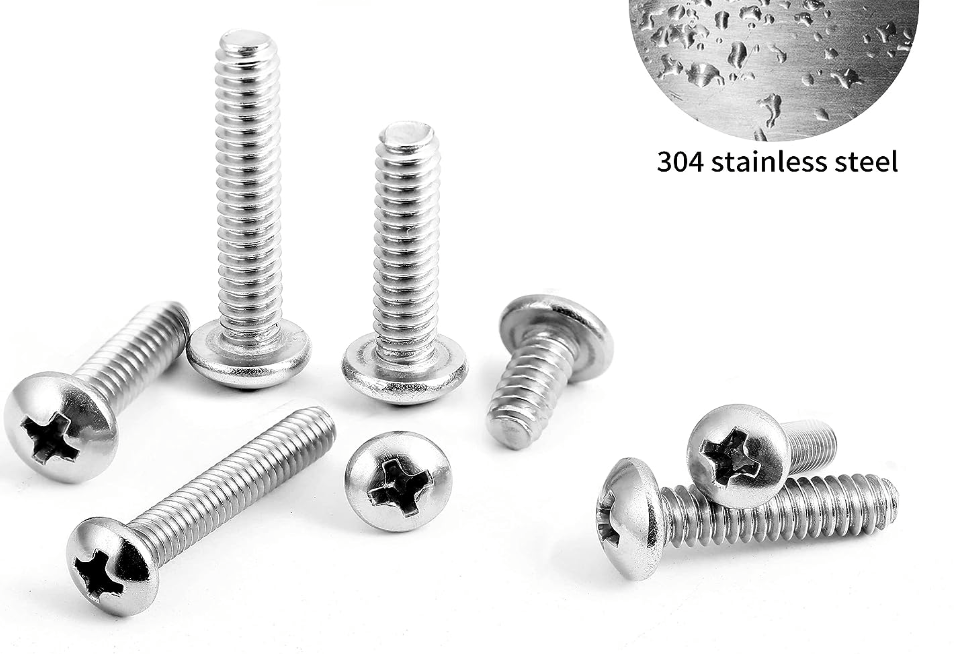
Sheet Metal Screws
Sheet metal screws are designed for use on thin metal sheets. They have sharp threads that allow them to penetrate the metal easily without damaging it. Sheet metal screws come in different sizes and lengths, and they are available in different materials, such as stainless steel and zinc-plated steel.
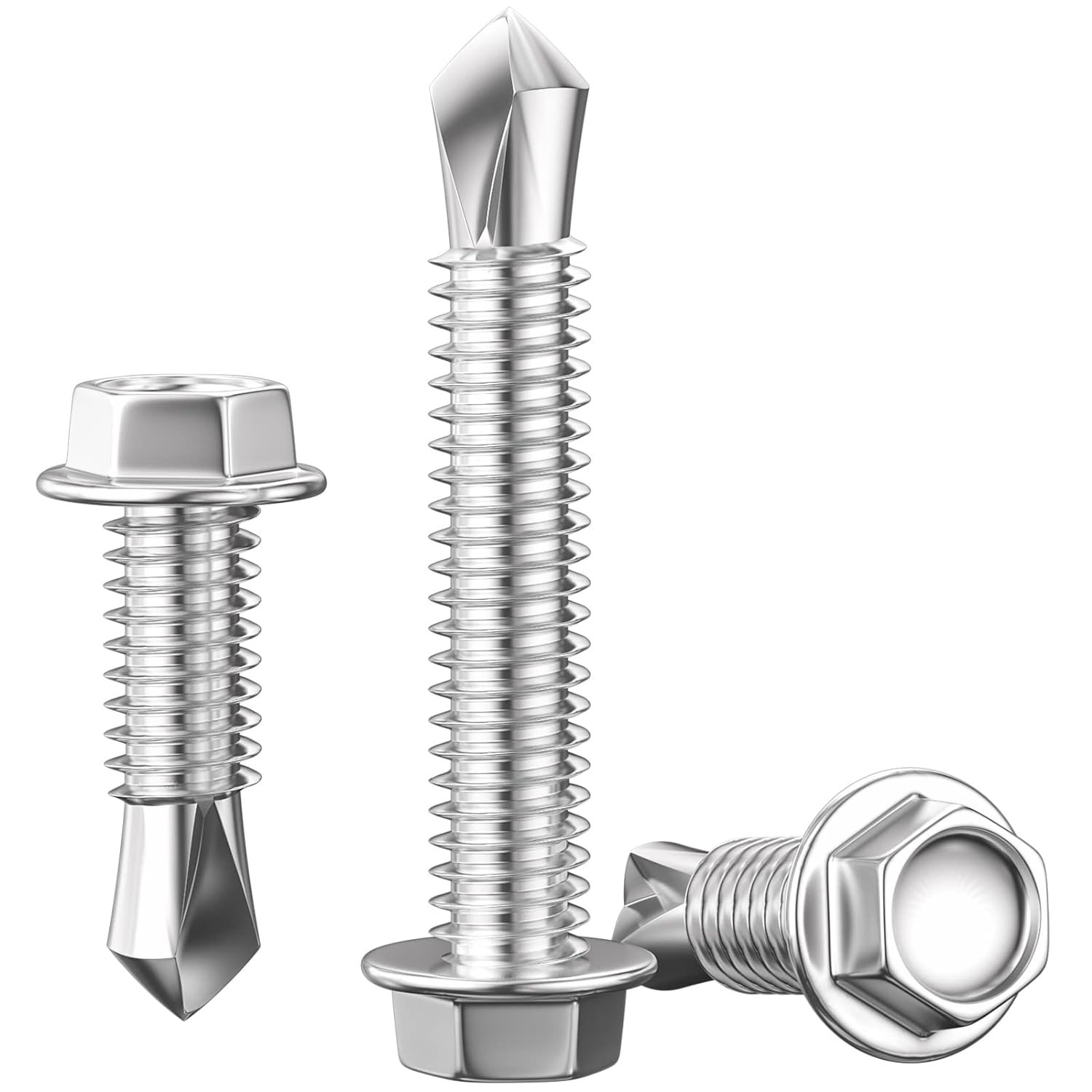
Lag Screws
Lag screws, also known as coach screws, are heavy-duty screws used for securing heavy objects such as beams and posts. They have a hexagonal head that allows them to be tightened with a wrench. Lag screws are available in different sizes and lengths, and they are commonly used in construction and woodworking projects.
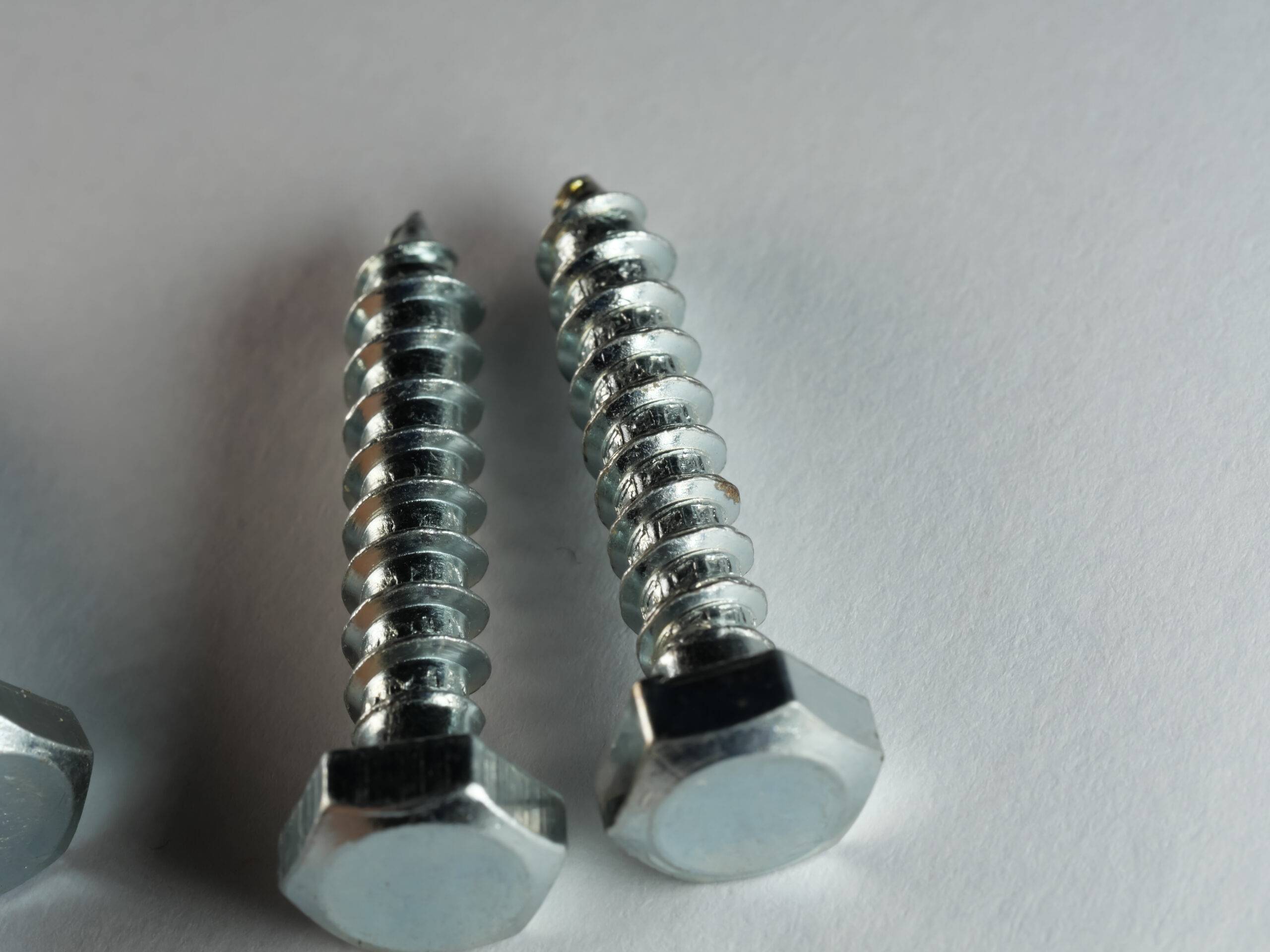
Photo Credit: wirestock via Envato Elements – A high-angle shot of lag screws on a gray surface.
Self-Tapping Screws
Self-tapping screws are designed to create their threads as they are inserted into the material. They have a sharp point that allows them to penetrate the material easily without the need for a pilot hole. Self-tapping screws are commonly used in woodworking, metalworking, and plastic projects.
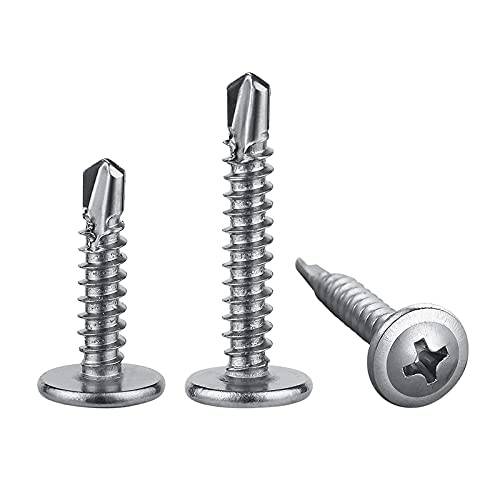
Concrete Screws
Concrete screws are designed for use in concrete, brick, and masonry. They have a special thread design that allows them to grip the material securely. Concrete screws are available in different sizes and lengths, and they are commonly used in construction and remodeling projects.
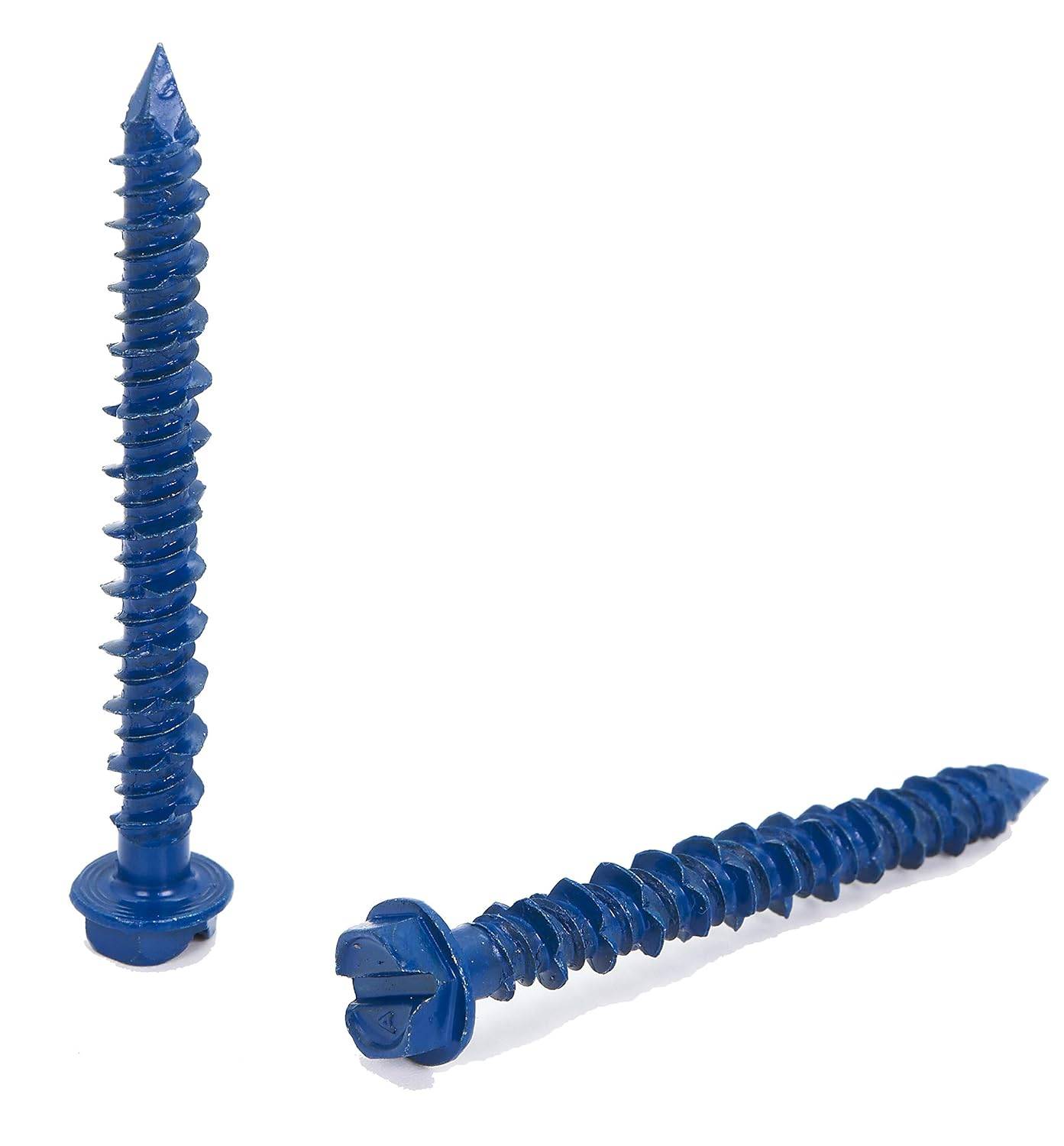
Drywall Screws
Drywall screws are designed for use in drywall and plasterboard. They have a bugle head that allows them to be countersunk into the material without damaging it. Drywall screws are available in different sizes and lengths, and they are commonly used in interior construction and remodeling projects.
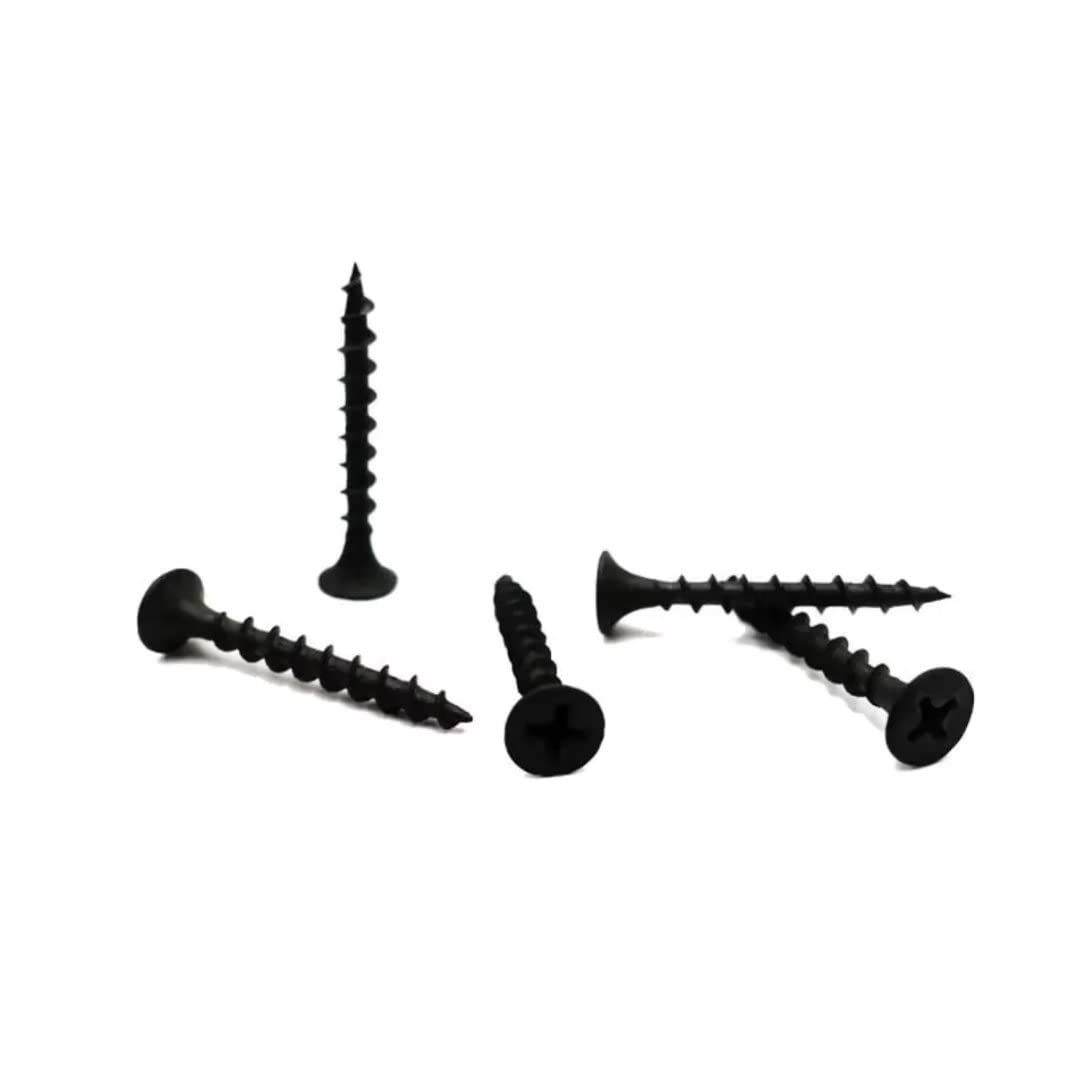
Deck Screws
Deck screws are designed for use in outdoor decking projects. They have a special coating that protects them from corrosion and rust. Deck screws are available in different sizes and lengths, and they are commonly used in woodworking and construction projects.
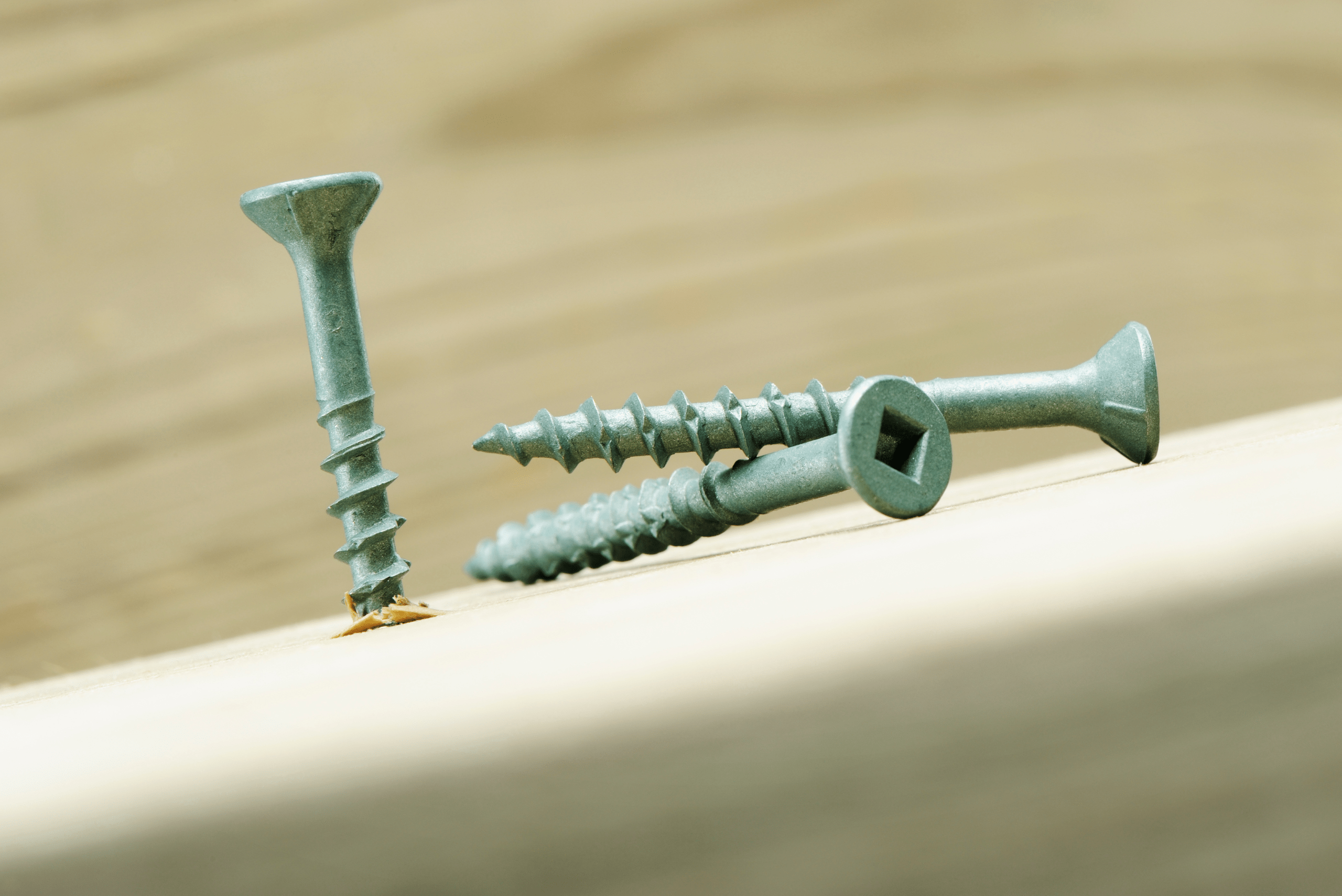
Photo Credit: Canva Pro – Three deck screws, one screwed in while the two others are beside it.
Security Screws
Security screws are designed to prevent tampering and theft. They have a unique head design that requires a special tool to tighten or loosen them. Security screws are commonly used in public facilities, banks, and government buildings.
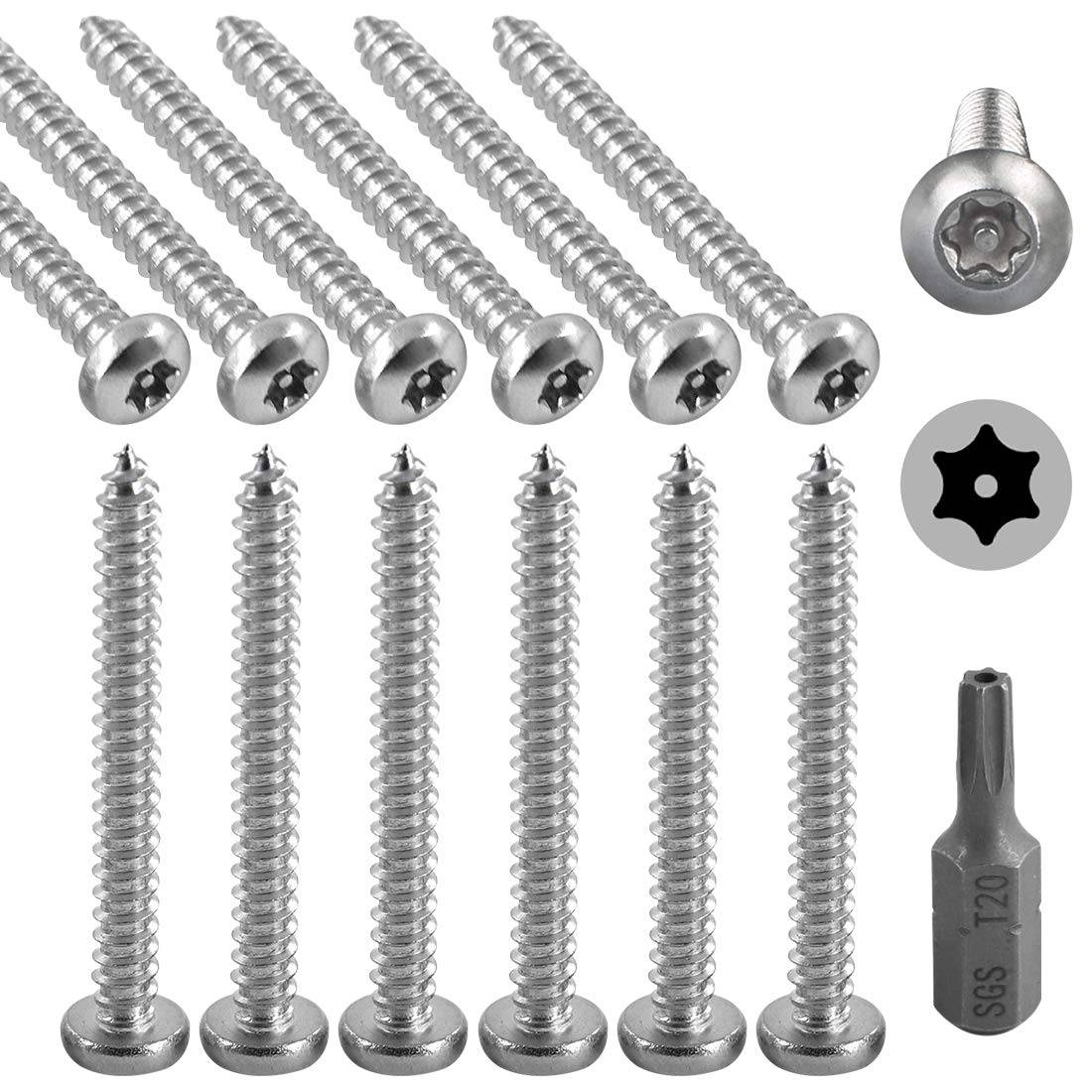
Hanger Bolts
Hanger bolts are designed for use in furniture projects. They have a threaded end that allows them to be screwed into wood and a machined end that allows for mounting a bolt. Hanger bolts are available in different sizes and lengths, and they are commonly used in furniture projects.
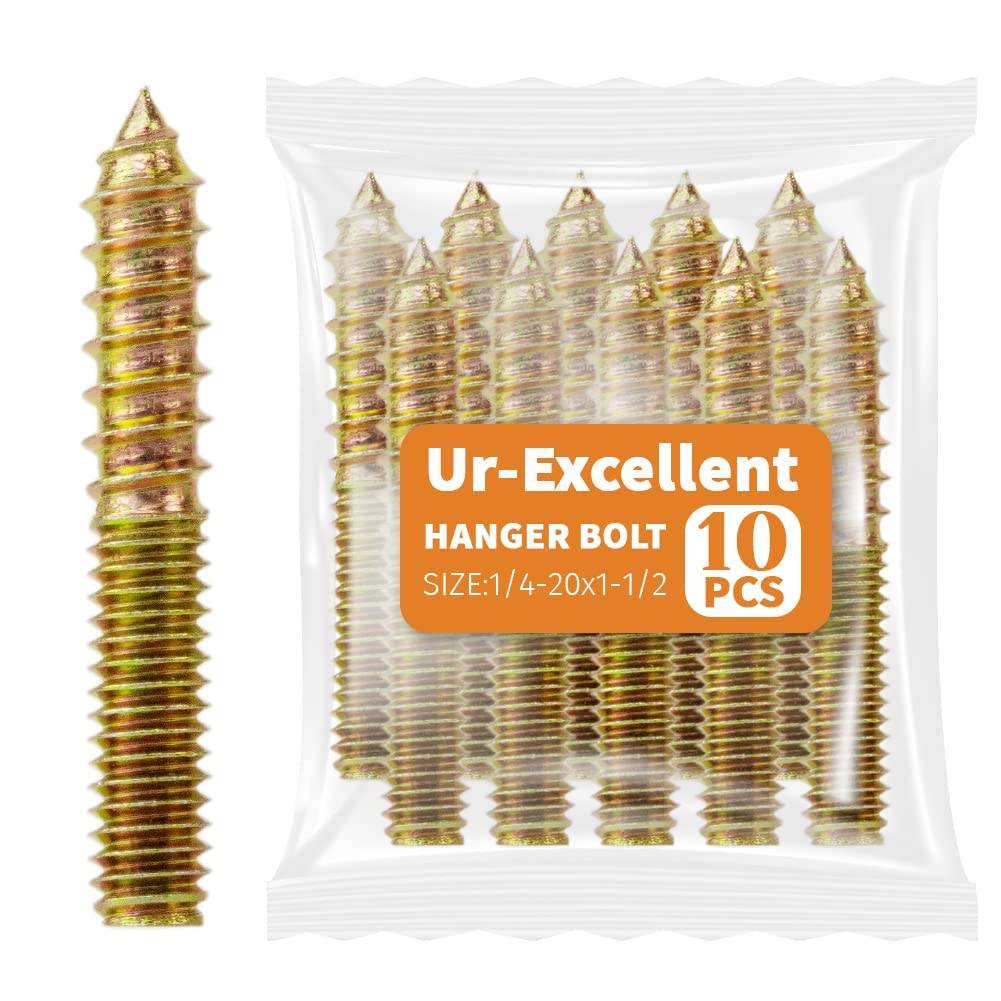
Choosing the right screw type for your project is essential for achieving a successful outcome. With the ten types of screws discussed in this article, you can be confident in selecting the right screw for your next project.
